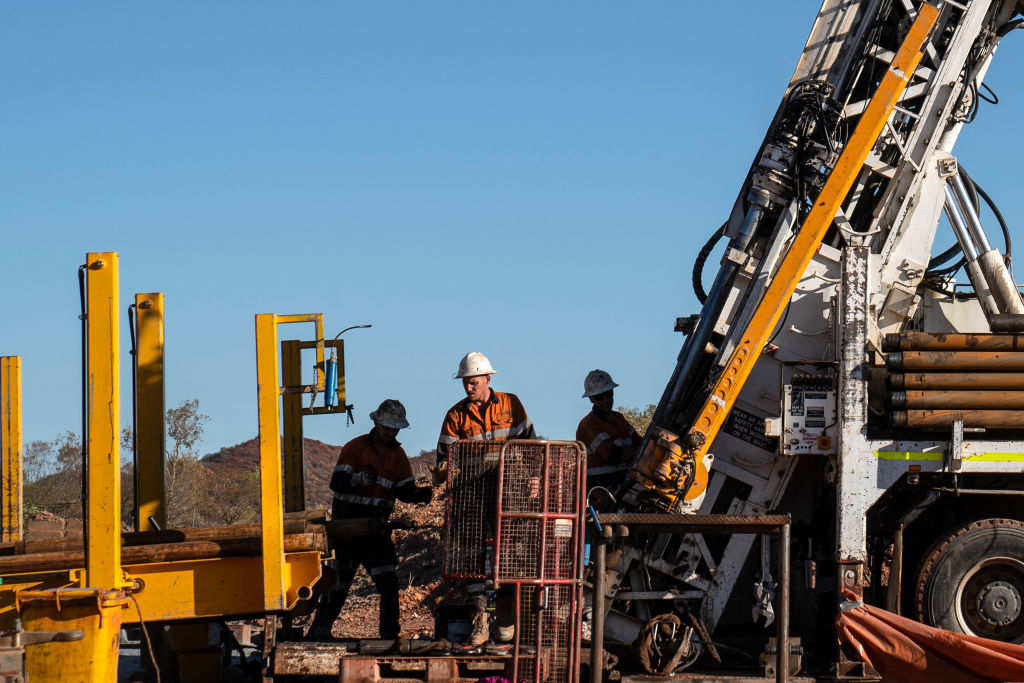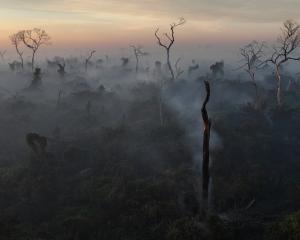
The shift to clean energy systems is gaining momentum, and unlike previous transformation it relies on critical minerals and rare earths, Resources Minister Madeleine King said on Monday at a mining symposium in Brisbane.
An onshore wind power plant requires nine times more mineral resources than a gas-fired power plant, Ms King said.
Each new megawatt of solar power requires 35-45 tonnes of steel, which still needs iron ore and coal despite "exciting developments" in hydrogen that may eventually lead to Australia producing green steel.
"That remains distant, so metallurgical coal will remain a necessary component of steel for some time to come," she said.
The International Energy Agency says mineral requirements for clean energy technologies will need to quadruple by 2040 to keep global warming below 2C.
But the agency's chief economist Tim Gould told delegates that announced projects are "not sufficient to meet the required scale".
He said lithium, cobalt, copper, nickel and rare earths, which Australia has in abundance, are essential to the new energy economy.
"And it's emerging much faster than many people think," said Mr Gould, who was speaking from Paris.
Critical minerals are "not a sideshow for clean energy, it's really part of the main event".
However, the mining industry's supply and investment plans are still geared towards more gradual action on climate change, he warned.
"If there's a shortage of a critical mineral, this affects the supply of new equipment - new electric vehicles, new battery packs," he said.
And with supply still concentrated in a few countries and China investing heavily in supply chains, geopolitical concerns will remain key - even in an electrified, renewable-rich energy system.
Critically, the industry must reduce its own greenhouse gas emissions even as it expands to meet surging demand for electric cars, solar panels, wind turbines and batteries - on wheels and for larger scale energy storage.
Federal opposition resources spokeswoman Susan McDonald warned development is at risk if anti-mining sentiment is allowed to flourish.
"Because if you stay silent, the vacuum will be filled by these anti-mining voices, and it won't just be coal or gas or oil that will be targeted, it will be the whole resources sector," she told the symposium.
Given the urgency of bringing on new mines and refineries, there is no time to delay because of red tape or "misinformation", Senator McDonald said.
"The world cannot afford for Australia to not be a developed critical minerals supplier."
She agreed that the boom in critical minerals will not replace the strength or success of traditional resources, saying commodities like coal, iron ore and gas "will remain vital for decades into the future".
The four-day forum brings together top researchers, politicians, diplomats, consultants and company bosses from around the world.
Hosted by national science agency CSIRO, the congress will explore how to more sustainably find and produce minerals needed for global decarbonisation.
More than 3500 delegates are attending the event after CSIRO mining expert and 26th congress chair Hua Guo led Australia's bid for the event in 2016.
Held in Australia for the first time, Dr Guo said the United Nations-affiliated event brings together people who can "reimagine mining".












